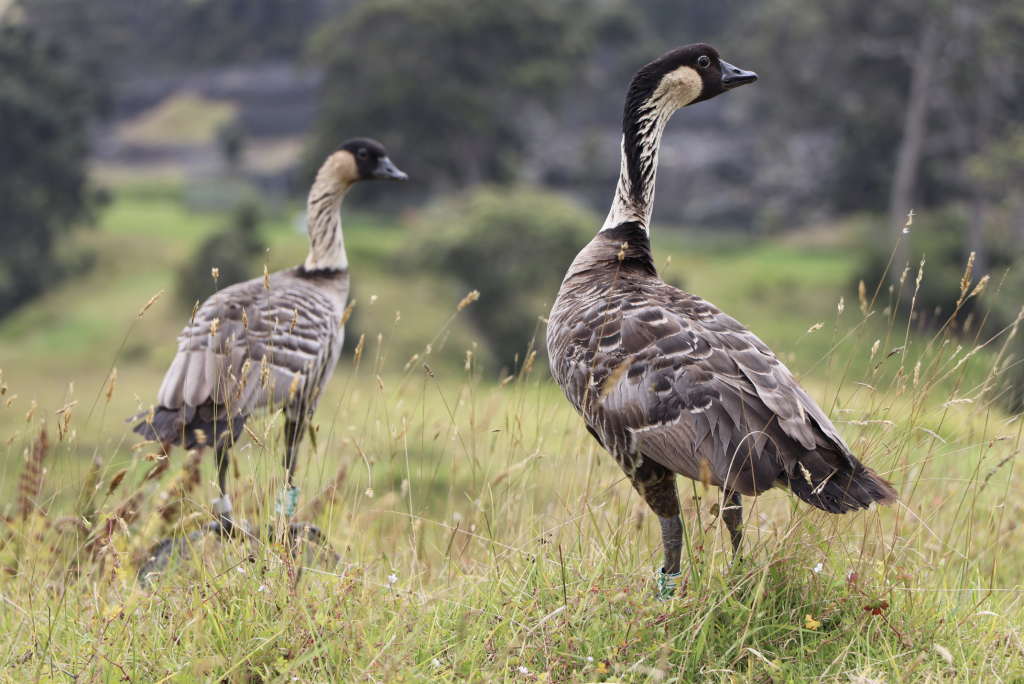Feeding and careless driving cause undue risk to nēnē population on Maui

A female nēnē was struck and killed by a passenger truck on Haleakalā Highway near the Dairy Road/Keolani Place junction in Kahului last Tuesday, according to state officials. “This outcome has become too familiar in recent years and the DLNR Division of Forestry and Wildlife wants to bring awareness to Hawai‘i residents that these human-caused deaths are preventable,” according to a news release issued by the state Department of Land and Natural Resources.
Nēnē are federally protected and listed as an endangered species in Hawai‘i. They are also protected under Hawai‘i laws. Fifty years ago the species was on the brink of extinction, completely absent from Maui and with fewer than 30 geese in the wild statewide.

Successful conservation and recovery efforts, including habitat restoration and protections from the Endangered Species Act, led to their reintroduction on Maui and a rebounded population of more than 3,000 nēnē statewide. “Unfortunately, great strides forward are being met with backward steps that are preventable,” according to the release.
“The ability to see nēnē and other endangered species in your community or on your commute is a privilege, but involves some responsibility. Being mindful to avoid influencing animal behavior and potentially causing negative animal-human interactions protects our natural resources,” DLNR reports.
During nesting season in the winter, the geese look for easy food resources and explore new areas. They are strong flyers but cannot launch straight up to avoid cars. So drivers are asked to slow down and watch the bird’s movements when they appear near a road or highway.
Feeding nēnē and other protected species is illegal under Hawai‘i state law. Making food or water available to wildlife attracts birds and other animals to food courts, busy roadways and parking lots, enticing them into dangerous, potentially fatal situations, according to state officials.
DOFAW reminds residents that the human-caused mortality of nēnē is a lingering concern affecting bird populations in the Kahului area and across the state.
If you accidentally injure wildlife, please report it. Prompt information helps protect these animals. If you see resource damage or violations, call DOCARE at (808) 643-DLNR (3567) or report it via the DLNRTip app.













